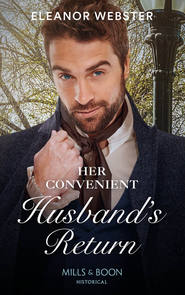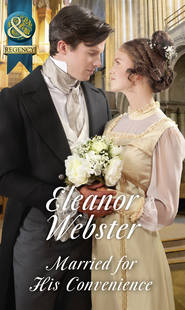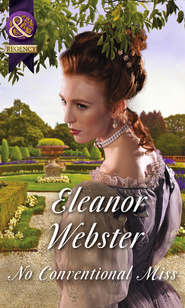По всем вопросам обращайтесь на: info@litportal.ru
(©) 2003-2024.
✖
A Debutante In Disguise
Автор
Год написания книги
2019
Настройки чтения
Размер шрифта
Высота строк
Поля
‘I have been feeling unwell.’
He glanced up sharply. She looked pale, he realised, although her appetite must be fine. She had gained weight. ‘Too many late nights, I suppose.’ While grief and injury had made him a hermit, she had become a social butterfly.
‘You are one to talk—well, at least about the late nights. No, it is not that.’ Elsie paused, glancing downwards, her fair ringlets falling across her forehead. She rubbed the black silk of her dress between her fingers. ‘You see, I am having a child.’
He heard the words. They hung in the space between them, almost visible within the room. He felt nothing. He knew he should feel something: joy, worry, sorrow that George would never see his child...
‘Right,’ he said.
Elsie frowned, scrunching up her face almost as she done when younger. ‘I am announcing that you may soon have a nephew, that George, who was your best friend, might have sired an heir prior to his death and all you can say is “right”?’
‘I am happy for you.’
It was not entirely a lie. It was not that he was unhappy. Rather he was nothing. He felt an odd remoteness as though everything was miles from him—distant and inconsequential.
And then it happened. One moment he sat within the pleasant decor of the sunny salon opposite his sister and, within the next second, the salon had somehow turned into a mire of muck, churned and muddy from cannon balls.
He could even smell the war, a mix of blood, smoke, sweat, manure and urine.
His body felt different. His feet were heavy and his boots sank deep into the mire with a sickly sucking squelch. All around he heard the groans of dying men, their whispered prayers and anguished calls.
‘Tony?’
His sister’s tentative voice came as from a great distance.
‘Tony, you’re white as a ghost. Should I get Mason? Are you in pain?’
‘No,’ he ground out. His hand tightened over the chair arm, the pain intensifying about his ribs. ‘Do—not—I—do—not—need help.’ He pushed the words out.
And then that other landscape disappeared, as quickly as it had come, and he was back in the neatly appointed room with its pleasant floral curtaining and sunshine-yellow walls.
‘Sit down, Elsie,’ he said as she stood, reaching for the bell pull. ‘No need to raise the alarm. I am fine.’
‘You’re certain? You still look pale.’ She glanced at him and then away. People tended to do that as though embarrassed to see the scar snaking down his cheek to his collar.
‘I am fine. Happy to hear your news and to know I will be an uncle.’ He pulled out the trite words, relaxing as her worry eased and she sat back in the chair.
‘Oh, Tony, I didn’t even realise, at first. It was my maid who suspected. I am six months along and usually a person would know before that, but I didn’t. When I felt ill, I thought it was the grief. And now I am so very happy and sad all at once. It was so—so terrible losing George, but having his child—that will make it easier. It will make life worth living again.’
‘Yes,’ he said, again feeling inadequate.
He should feel something. George had been his closest friend. He’d watched the man die. And held him as he did.
‘And Father. This would have been his first grandchild. He would have been happy.’
‘Yes,’ Tony said.
He had been recovering from his own wounds in the hospital when their father died. He’d dropped dead like a stone to the floor when he’d heard about Edgar’s death.
That hurt. Even through the numbness, that hurt.
‘He cared a lot for George. He was happy when you married,’ he said, again because he felt that he ought to do so, that something was expected.
‘Anyway, I have decided to go to Beauchamp and I wanted to talk to you prior to my departure. Since Waterloo, you know, and after losing Father and George and Edgar, I stayed here to keep busy and to keep Mother company. I was afraid to be alone, afraid of my thoughts.’
He looked down. He had been so overwhelmed with his own pain, he had failed to see hers. She’d lost her husband, brother and father. Again, it seemed that he ought to feel more and that his emotional response was inadequate. Since when had feelings ceased to be spontaneous, but become ‘shoulds’? Like one should wash one’s hands before tea.
‘Tony?’
He looked up. ‘I’m sorry, I was miles away.’
‘Anyway, these days I am feeling so tired. My head aches and everything is so noisy here. And even near my house, London does not smell pleasant and vehicles pass day and night. Besides, I am not so afraid of the quiet.’ Her hand touched her belly. ‘I think I will almost like it.’
‘Is there a good doctor there?’
‘I—Yes. I think so.’
‘And Mother?’
‘She is doing well. She socialises much as she always did. She thinks the country will be good for me and will visit after the child is born.’
‘I will go with you.’ He spoke suddenly and felt a jolt of surprise at his own words.
‘You will? Why?’
He didn’t exactly know, except that he was failing his remaining sibling and must make it right. ‘I might like the quiet, too.’
Besides London was too filled with people and empty chairs.
He and Elsie had never been particularly close as children. He’d been closer to Edgar. He remembered fishing with him at Oddsmore, learning to ride that bad-tempered, stout little pony, sharing a tutor, Mr Colden—except Tony had insisted on calling him Coldfish.
He’d viewed Elsie rather as an irritant as she tried to chase after them. Indeed, it had taken a month at least to adjust to the fact that his best friend had suddenly, and without any warning, fallen in love with her.
Still, Elsie was his only living sibling and his best friend’s widow. He should feel something... He frowned, trying to find evidence of sentiment mired within this odd, cold, numbness.
‘You are not going to Oddsmore?’ she asked.
‘No.’
‘It is your estate.’
‘Oddsmore is fine. Mr Sykes does an admirable job and doesn’t need me interfering.’
He had not been there since his father’s death. George... Edgar... Father... Like dominoes.
‘Very well,’ Elsie said. ‘I will enjoy the company and you might be able to help run the estate. I have been feeling I should do more, particularly now.’ She patted her stomach again with a mixture of pride and protection.
‘I would imagine you should do less, particularly now.’








